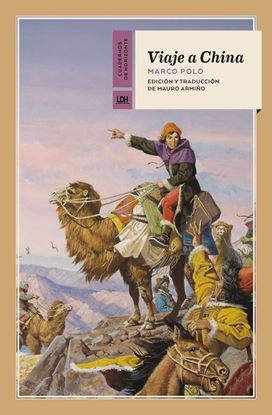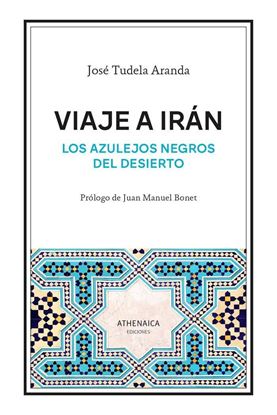

VIAJE A CHINA
El viaje de Marco Polo a los confines del continente asiático fue la mayor aventura fabulosa de la Edad Media. Y es que de «fábula», cuando no de invención embustera, la trataron los contemporáneos cuando la leyeron. En este libro, Marco Polo nos muestra un abanico de «rarezas» maravillosas que conoce en su interacción con los mongoles y los chinos. Relata las costumbres del mundo oriental; nos describe y conduce por los paisajes silenciosos del Pamir, los verdes valles de Afganistán o las noches en los contrafuertes del Tíbet; y nos acerca a sus cuentos y leyendas, muchos de los cuales aparecerían en «Simbad el Marino» y en «Las mil y una noches». Estas memorias son, ante todo, recuerdos y apuntes sobre las tierras recorridas, más que testimonio de actividades propias; Marco Polo entonces no es un protagonista, sino que se convierte en testigo de lo que refiere, regalándonos un viaje maravilloso.
1,250
938
VIAJE A IRAN
Interesado desde antiguo por la milenaria cultura persa, José Tudela Aranda pudo cumplir en julio de 2012 su sueño de viajar a Irán, un país lleno de contradicciones que sigue proyectando su orgullosa singularidad en el conjunto del mundo islámico. Surgido de las notas tomadas entonces, este libro nace del impulso de explicar el contraste entre la huella de un pasado esplendoroso, visible en sus tradiciones y monumentos, pero también en múltiples aspectos de la vida cotidiana, y los rigores de la teocracia que gobierna la república surgida de la Revolución de los ayatolás. Al margen de las simplificaciones y los tópicos, debidos en muchos casos a la ignorancia, el recorrido muestra una realidad colorida que sorprende en los azulejos y las vidrieras de mezquitas y palacios y tiene su reflejo en las reprimidas aspiraciones de la sociedad, sometida a una dictadura que fue también en parte producto de los errores de Occidente.
1,650
1,238
VIAJE A OXIANA
Poética, erudita y a la vez ácidamente humorística, la narración que Robert Byron traza de su peregrinaje a través de Persia y Afganistán en los años treinta, en busca de los orígenes de la arquitectura islámica, es una obra maestra en su género. El libro de viajes más influyente en la mejor edición posible. Una edición (fotografías, mapas, cartas) que es un regalo a quienes osan seguir viajando hoy, libres de prejuicios, por el mundo wifi del siglo XXI.
1,350
1,013











